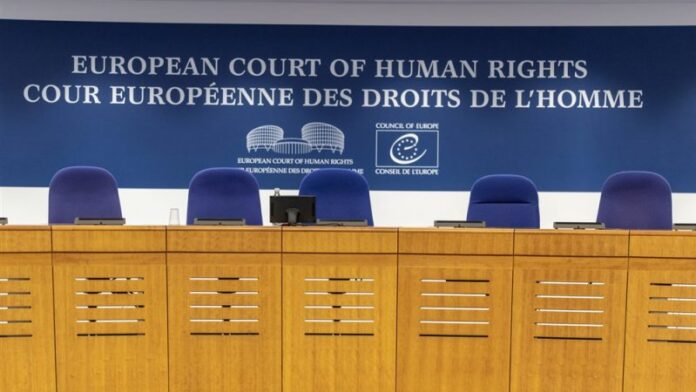The ongoing case considers human rights violations by the Russian Federation in the temporarily occupied territories of Donetsk and Luhansk regions and the 2014 downing of Malaysia Airlines flight MH17 in eastern Ukraine by the separatists of the so-called Donetsk People’s Republic (DPR), Lugansk People’s Republic (LPR) and members of the Russian military.
Officials in Kyiv handed over evidence to Strasbourg, including interrogation protocols, video recordings, and intelligence, with a textual description of this evidence running to over 800 pages.
While a final decision will take some time, the intermediate ruling, published on 25 January, goes some way to attributing responsibility to Russia for crimes committed on Ukrainian territory, by proving the regions were under Russian occupation.
The ECHR confirmed that in the spring of 2014, Russia carried out armed aggression against Ukraine in the Donetsk and Luhansk regions. By late summer 2014, a large-scale invasion began, which Russia still denies. The court ruling says that the invasion began no later than August 2014.
The court established beyond any reasonable doubt that there had been Russian military personnel present in an active capacity in Donbas from April 2014. It also found that Russian soldiers had fought in the armed groups, and senior members of the Russian military were present in command positions in the separatist armed groups and entities from the outset.
The court also found that from 11 May, all areas in the hands of separatists that name themselves as DPR and LPR had been areas under direct Russian control. The court did not rule out that the invasion had started earlier than this date; it refers to the date from which legal responsibility, borne by Russia, begins.
The ECHR concluded that, at the latest, by August 2014, in the context of the battle of Ilovaisk, there was a large-scale deployment of Russian troops.
Beyond confirming Russian presence in eastern Ukraine, the ruling also set definitions for assessing Russia’s violations of human rights during its occupation.
The court did not confirm the violations – this is to be decided at a later stage – but it declared that preliminarily (so-called “prima facie”) evidence, such as an “administrative practice”, seems to be present.
The Ukrainian complaint will be considered on the merits of all these points.
The question of borders
A central question in the deliberations was how to identify and define the borders of the conflict – at which point each state had control of which territory.
In its investigation into the Russian-Georgian conflict of 2008, the ECHR asserted it did not have the jurisdiction to define borders in times of active hostilities, explaining that the “fog of war” prevents recognition of which state exercises control.
However, in January’s verdict, the ECHR ruled that the Russian Federation controlled all the territory of the so-called DPR and LPR as of 11 May 2014, and therefore “the acts and omissions of the separatists are attributable to the Russian Federation in the same way that the acts and omissions of any subordinate administration engage the responsibility of the territorial State.”
In the words of Ukraine’s judge Mykola Gnatovskyy, “those who expected that Georgia vs Russia ruling makes it impossible for the Court to make rulings on violations during active conflicts, appeared to be wrong.”
The ECHR also concluded that discussions of the allegations of the Dutch Government concerning the downing of flight MH17 are admissible, even though this tragedy was part of the hostilities. The court explained that this crime had not been committed “in conditions of chaos” and could therefore be considered.
Separately, the ECHR allowed the consideration of episodes when the Russian Federation carried out artillery shelling of territories controlled by Ukraine, destroying civilian houses and schools. The court will decide on the admissibility of each episode during the hearing of the complaint’s merits.
This is not the only interstate case in Strasbourg where Ukraine seeks to bring Russia accountable for mass human rights violations in Ukraine.
Among others, there are cases related to the Russian occupation of Crimea, and political murders of Vladimir Putin’s opponents at home and abroad, as well as the case linked to the full-scale war of 2022.
No dates have been set yet but the Court President Síofra O’Leary said last week that decisions on these cases are of absolute priority for the Court.
Source : Euractiv

